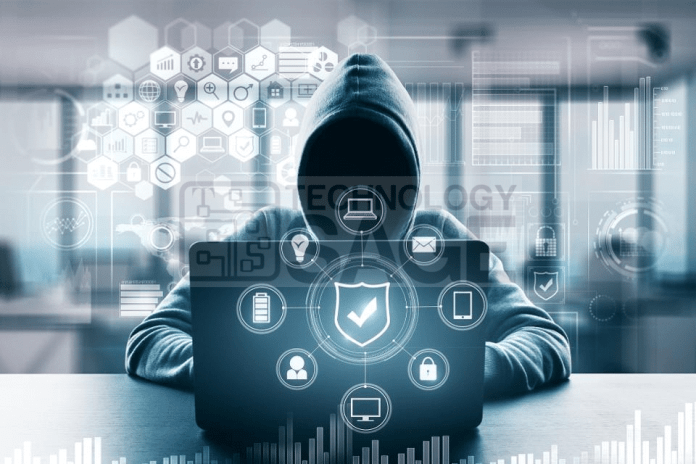
Picture this. It is 2020, and you decide to start a small business of your own. It begins with an idea you’ve been passionate about for your whole life, selling homemade ice cream in a variety of flavors few have dreamed of. You are located at the corner of two busy streets, so you don’t need to worry about getting noticed.
You immediately start getting popular as you are the only ice cream store for miles. A few years pass, and you are labeled the best ice cream store in the region. People come from miles to visit your store. However, when your future seems to be bright, disaster strikes out of nowhere. Which would be worse for this store, a two-day power outage or a cyberattack?
Two days without power—How bad could it be?
No one likes when the power goes out, especially a company that relies on constant power to run their business. Unfortunately, power outages are a natural part of the modern age, and can have widespread consequences. Brownouts, or a lowering of voltage, can make equipment malfunction causing damage to businesses, whereas a blackout, or permanent fault, renders businesses unable to function at all. Much of the time, power outages are unavoidable, caused by bad weather, vehicles damaging poles, animals damaging wiring, or a failure or malfunction in electrical equipment.
These power outages disrupt business, and inflict a high cost depending on what kind of business you have. A mere day without power caused a data center a loss of $12 million, manufacturing factories might lose up to $60 million, and retail stores can suffer a loss of $5 million in merchandise like ice cream spoiled due to lack of refrigeration.
There are also personal costs to industries like healthcare and education that exact a more critical toll as people are left without medical treatments or education services. For a small business, these losses are critical, and while bigger businesses can withstand a day or two of power outages, the cost is still damaging to the business as a whole.
A cyberattack couldn’t be worse, could it?
In today’s increasingly digital world, businesses need to worry about more than just physical problems related to their business. While a power outage can disrupt and even ruin a business, in the digital world that the company also exists in, there are virtual threats in the form of cyberattacks. These attacks are just as, if not more, damaging than physical attacks. And with an increasing digital footprint coming into 2020, cyberattacks will become more prevalent and much more harmful.
As technology increases, so does the avenue for attacks by hackers. The development and
roll-out of 5G technology opens a new area for cyberattacks as hackers find weaknesses in previously untested equipment and programming used to send and receive 5G signals.
Along with this new development, an increasing reliance on tech has left an opening for hackers to abuse biometric technology used on many devices to authenticate users. Ready-to-use hacking tools are widely available across the Internet, so cyberattacks are not just the focus of experienced hackers. Ransomware attacks will continue to hit government and private industries. The automation of cybersecurity leaves openings for exploitation. And mobile devices will increasingly be attacked as more and more are deployed.
These are the paths cyberattacks will take in 2020 and beyond.
If you think you are too small and insignificant to be the target of cyberattacks, you may be a hacker’s next target. Given the digital field in 2020, your business uses a multitude of gadgets and programs that hackers target. Just because you aren’t a big business or a government agency does not mean hackers will pass you over.
In fact, the size and capabilities of smaller businesses attract cyberattacks as they tend to have weaker defenses given the resources needed and what the company can invest in. Regulations are also weaker when it comes to businesses as opposed to personal accounts, allowing for cyberattacks to inflict more damage long before it is caught and dealt with.
How to defend against cyberattacks
Both a power outage and a cyberattack can harm and even destroy a business, financially, and socially. However, there are ways to counter this threat. You must find endpoint security software to help mitigate potential threats against your business from cyberattacks.
Endpoint security is a critical point of cybersecurity as it guards the points of access cyberattacks often take. Endpoints are the weakest points in the security system. Thus, endpoint security is essentially the first line of defense against attacks, protecting the weakest, and first-attacked points hackers try to go for in their cyberattacks. With endpoint security software, your operations don’t need to close down with the threat of a cyberattack.
Proactive Defense
Whether it is a power outage or a cyberattack, businesses must contend with that which is inevitable in today’s world. Power outages and cyberattacks cannot be stopped entirely, but they can be prepared for, to try to minimize the damage they can cause. Just as someone would create defenses to ensure a power outage does not destroy their business, so too must you invest in these defenses, so cyberattacks do not do the same. Stop them before they start. Prepare to defend and win the day.



